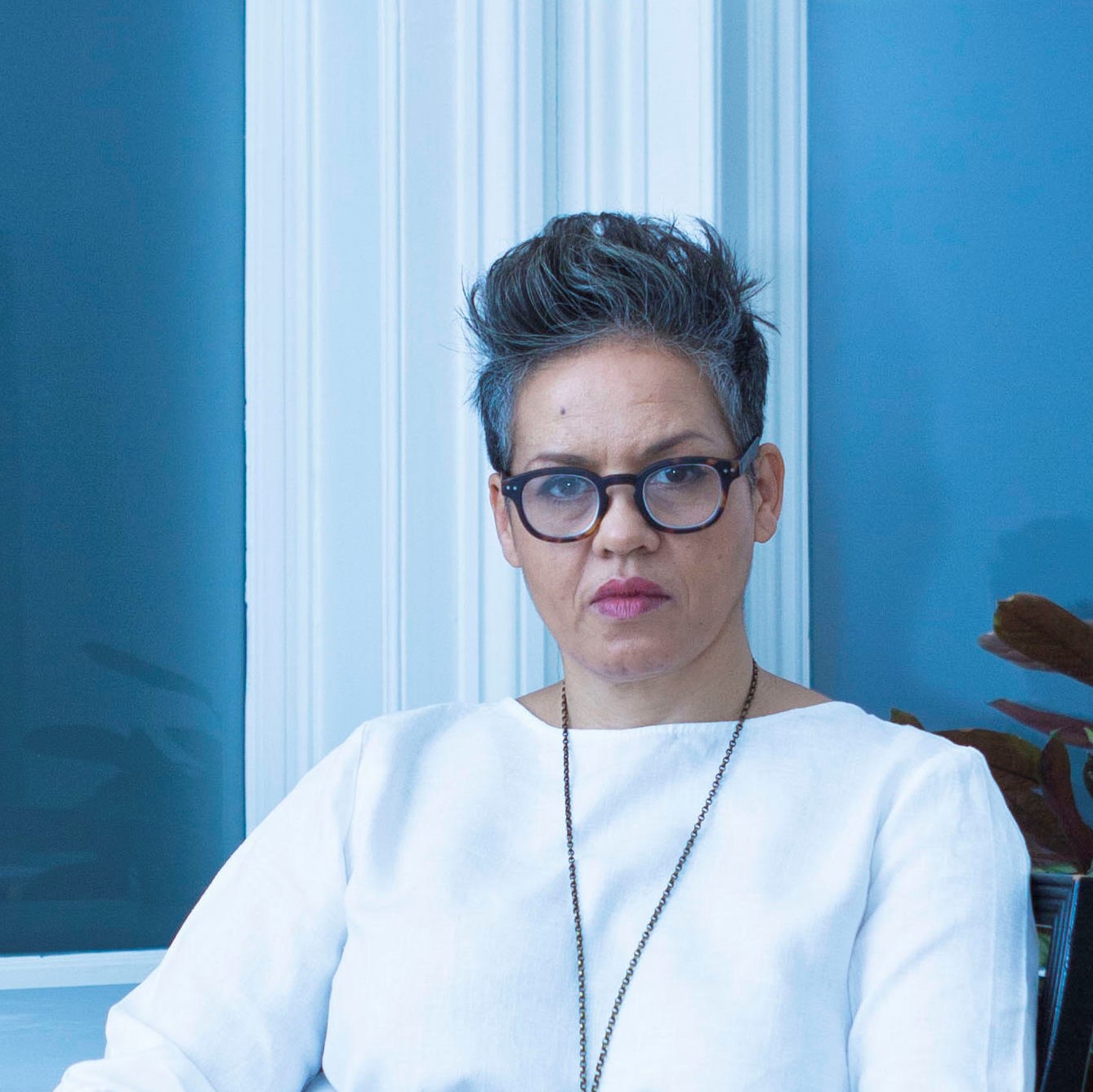
Waal, Kit de
Interesting facts that have influenced Kit De Waal’s writing
- She was born in Birmingham
- Her father was from Saint Kitts, in the Caribbean
- Her father was a bus driver
- Her mother was Irish
- Her mother was a foster carer, a registered child minder and an auxiliary nurse
- She worked in criminal and family law and as a magistrate
- She sits on adoption panels and is an adviser for Social Services
- She has written training manuals on adoption and foster care
- When her children were older she took a course in creative writing at Oxford Brookes University, gaining a Master of Arts degree
- She was living in Birmingham during the time of the Handsworth riots
- She is Visiting Professor of Creative Writing at the University of Leicester
In her own words...
- ‘I’m mixed race, I have adopted children. I’ve trained social workers.’
- ‘Part of My Name is Leon is set in an allotment. I had an allotment.’
- ‘The book is set in 1981. I was 21 in 1981, so I know that year very well.’
- ‘I wanted to write about a child who had been in the care system; to be the hero of a story.’
- ‘It’s really important for me to know that children will be reading about Leon, because he’s not the sort of child who normally features in books.’
- ‘What I’d like people to get from my books is how it is to live in a non-traditional family structure.’
- ‘We also need to find more imaginative ways to connect readers to stories: graphic novels and podcasts about books, for example.’
- On reading: ‘You can discover different worlds and different people.’
- ‘If you don’t like reading, you can read a book through audiobooks.’
- ‘I am a devotee of audiobooks. They reach you in a different way.’
- ‘I want to use the pain and trauma from my childhood to write about experiences beyond my own.’
- ‘I am 63 and consider myself mid-career. I’ll write until they remove the pen from my hand.’
Critical acclaim for Kit de Waal’s writing
Review written by C Odimba, 2016:
My Name Is Leon was the standout text for me. Written sweetly and tenderly, I felt incredibly invested in Leon from the opening pages. It follows Leon as he moves through the care system and his relationship with his biological mother, brother and found family. Kit De Wall [sic] is an incredibly skilled author that navigates hope, humour and grief seamlessly.
Moreover, Leon is a fully rounded character; his race and gender are only part of his overall identity. There is a focus on the theme of race: we see the impact of the Black Power movement on England, and the Brixton Riots which are relevant to modern BLM protests. However, family, grief and healing are as equally important themes.
Unlike many works of literary fiction these days, Kit De Waal’s novel is not just heartbreaking, but genuinely uplifting. There is plenty of hope for a better future, and crucially plenty of love depicted in it.
There were several times where this book moved me to tears and several more where it made me angry, ultimately though it made me care about what happened to every single character. There were a lot of emotive topics dealt with in this book; race, adoption and mental health. All the topics were dealt with in a sensitive manner.
A review of Supporting Cast (Penguin £8.99, ebook £8.99) from Kit de Waal:
‘Supporting Cast gives more glimpses into characters in the novel [My Name is Leon], including his troubled mother, Carol. This is a prosaic world of social services, hospital canteens and police brutality, but it has heart and quiet heroism — de Waal’s strength is that she cares about her characters.’
Review of Without Warning and Only Sometimes:
‘[This is] an eloquent reflection on her early life, described as: A childhood of opposites and conflicting identities and: An astonishingly good evocation of the dream and reality of migration to post-war Birmingham.’
Lenny Henry on reading the audiobook:
‘Often when you do an audiobook, it's like a deep dive because you're playing all the characters and you're doing the narration too,’ Sir Lenny says before a preview screening in Birmingham, where the story is set. ‘I just found myself swept up in this kid's world. And I found myself really moved by his predicament, being a mixed race kid who's got a younger brother who's white with blue eyes, and the threat of being separated from his brother causing him to take certain actions.’
TOAST magazine review:
From a review of Without Warning and Only Sometimes in TOAST magazine, the interviewer asked Kit de Waal how she approached this particular book, a memoir rather than a novel, and Kit’s reply was:
‘I think as a writer you must always be vulnerable whatever you’re writing. Vulnerability is where the truth lives and if you pull your punches, or don’t really go there, I think the reader knows it – knows you’re trying to conceal something or at best you can’t, for whatever reason, tell the truth.’
Kit de Waal’s contribution to literature and potential legacy
De Waal’s work is rooted in what could be called ‘marginal’ lives, but she has noted that publishing, and the creative industries, threaten to become something of a closed shop for the middle classes once more. One result of this is that whole swathes of experience – the world of minimum-wage work, for example – are absent from fiction. She believes that the solution is not for one or two lucky individuals to be raised up from an impoverished group – but about giving existence some stability again: decent housing, long-term rents, a regular wage and a bit of space to breathe. She would never say ‘prioritise working class writers only’, but she does say ‘let’s at least see who is out there, both as writers and as readers.’
Her sense of mission explains why she set up a scholarship for writers from disadvantaged backgrounds at Birkbeck College, London: the Kit de Waal Creative Writing Scholarship is fully funded. Her book Without Warning and Only Sometimes was added to the Reading Agency’s ‘Quick Reads’ initiative in 2004 which sees a bitesize version donated to libraries for gifting to hospitals, prisons, care homes and shelters.
© ZigZag Education 2026: content may be used by students for educational use if this page is referenced.
| 1960 |
Birth
|
|
| 1981 |
Handsworth Riots
|
|
| 2016 |
My Name is Leon
|
|
| 2016 |
My Name is Leon (audiobook)
|
|
| 2016 |
Creative Writing Scholarship
|
|
| 2017 |
Irish Novel of the Year
|
|
| 2017 |
Radio 4
|
|
| 2017 |
‘Where Are All the Working Class Writers?’
|
|
| 2019 |
Listening Books
|
|
| 2020 |
Supporting Cast
|
|
| 2022 |
My Name is Leon BBC production
|
|
| 2023 |
AQA GCSE English Literature specification
|
|
| 2024 |
Without Warning and Only Sometimes
|


